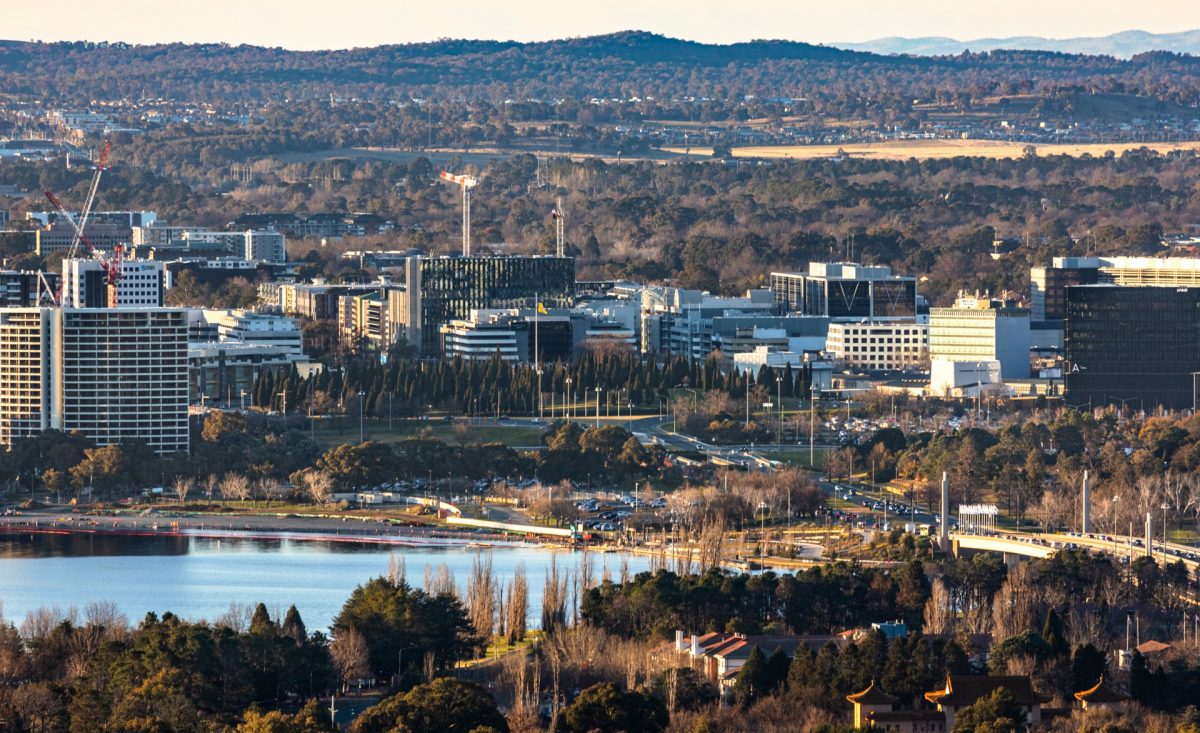
Workplace flexibility is welcome, but let’s not forget the CBD. Photo: Michelle Kroll.
Flexibility arrangements that include working from home have been a hot topic for the Australian Public Service since the COVID-19 pandemic.
The sector proved, during what seemed like endless lockdowns, that it can work.
And studies are pouring in from everywhere to support the benefits – for work/life balance, health, mental health – of such arrangements.
There is even evidence to show it can also be a boon to productivity.
Little wonder then that in the current APS-wide negotiations for the next workplace agreement, that flexible working arrangements have featured so prominently.
The Community and Public Sector Union scored some solid wins in nutting out work from home conditions and insisting that the right to modern flexible working arrangements is embedded across agencies.
There must be some cautions thrown into the mix here, however, when the future of the APS and the future of the ACT is fully considered.
The capability review of the Department of Health and Aged Care that has just been published reveals that middle management there is struggling to deal with a high level of workplace flexibility.
They haven’t been trained for it. There is an evident frustration at not being able to bring teams together like they used to – in the good old days.
It’s not just in Health. That capability review was the pilot. Most agencies will be undergoing them and it’s a safe bet that on the flexibility front, there will be a lot of commonly shared problems revealed.
But the frustration isn’t only felt by management.
Last week, Region revealed that APS Employee Census results are rife with staff expressing various levels of disillusionment over management not being around, over teams not meeting, and over far fewer face-to-face strategising.
Since reporting that, I have heard of a number of instances in more than one agency where staff have been in Microsoft Teams meetings, all in the same room but with their backs to each other and all facing their screens.
Yes – all in the same room at the same time, talking to each other but through their computers.
The common excuse seems to be that someone working remotely was meant to join the meeting but didn’t show up, yet the rest went ahead with the discussion via Teams anyway instead of turning away from their screens and turning towards each other.
It sounds ridiculous (and it is) but it’s happening across the APS right now.
Welcome to the post-COVID world of greater workplace flexibility.
By extension, work from home arrangements also mean the face and shape of recruiting will change. That too is already happening.
Increasingly, APS jobs will go to people who will not be required to live in the capital.
Sydney and Melbourne will reap the benefits of APS flexibility at the expense of Canberra.
Already, a good many of the highest ranks of the Senior Executive Service do not live or work in the ACT.
More roles in the APS levels and the SES will be stationed outside of Canberra.
That’s not a good scenario for this city.
Then let’s throw in the fact that there will be fewer consultants and labour-for-hire jobs in the APS (already is) and we have the potential for a dying CBD and a collapse of small business in the city centre.
Fly into Perth and you can see the giant skyscrapers of the mining industry dotting the cityscape, with more being built.
It’s somewhat similar for Brisbane.
Sydney’s high rises are predominantly those of big business and stock trading conglomerates, with a similar scene in Melbourne.
Canberra is a public service town. Our ‘tall’ buildings reflect that.
They are towers of public servants doing government work and corporations who service the government sector.
More are being built here too.
But with the very manner in how (and where) public servants carry out their work starting to change so decidedly, there is a risk that the capital’s city centre could lose some (more) of its pulse.
Don’t get me wrong – flexible working arrangements are a sign of a healthy and modern workplace, and more power to it.
But let’s not lose sight of the fact that we also live in a capital city that needs to stay vibrant and thrive, and to keep growing economically and socially.
Original Article published by Chris Johnson on Riotact.










